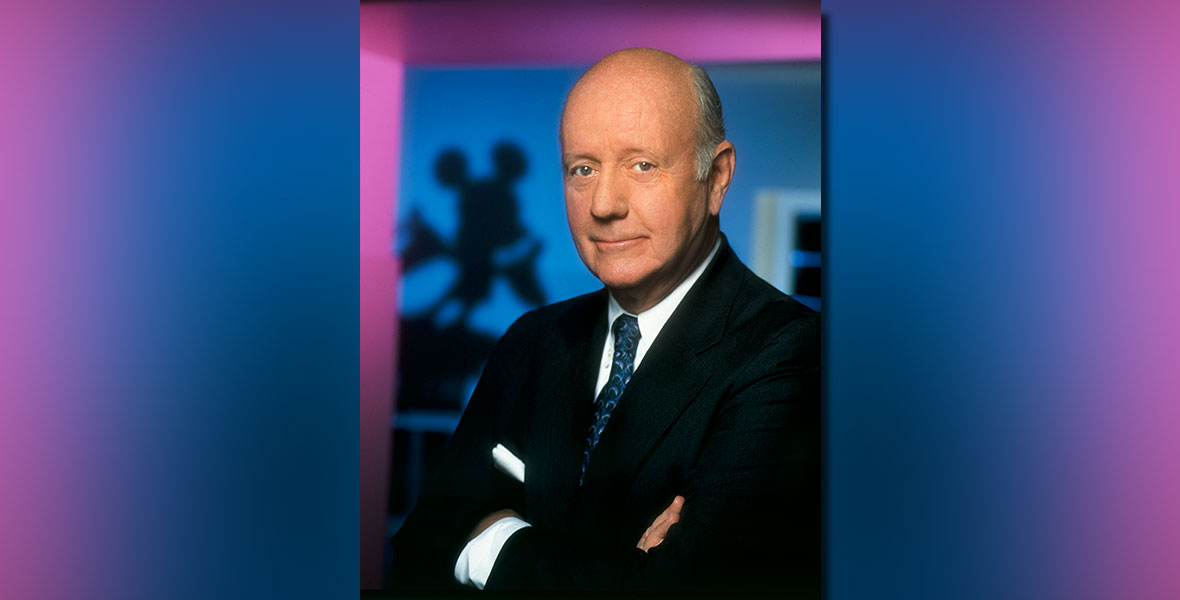Tom Murphy built Capital Cities/ABC, Inc. from a single television and radio station into a multibillion-dollar international media conglomerate. In addition to leading Capital Cities to its position as a media empire, Murphy distinguished himself as a responsible corporate citizen by a constant emphasis on public service.
Thomas S. Murphy was born in Brooklyn, New York on May 31, 1925. After service in the United States Navy, Tom attended Cornell University and earned his B.S. in 1945. An M.B.A. from Harvard University followed four years later.
After five years at Kenyon & Eckhardt Advertising and soap and detergent manufacturer Lever Brothers, Tom began his broadcasting career with a little help from his father’s friends. The legendary broadcaster Lowell Thomas and Thomas’s business manager Frank Smith joined a few other investors to start Hudson Valley Broadcasting. They needed a station manager, and turned to their friend’s ambitious son.
In 1954, Tom assumed duties as station manager—the first employee at WROW-TV in Albany, New York. This station and its sister radio station, WROW-AM, constituted the Hudson Valley Broadcasting Company. It took nearly three years of red ink before the station saw a profit, but the company evolved into Capital Cities, and eventually into Capital Cities/ABC, Inc.
A single share of this company in 1957 would have cost $5.75; 40 years later it would have been worth more than $12,000!
In 1960, chairman Frank Smith moved Tom to New York City, as executive vice president of Capital Cities. In 1964 he was named president. With Smith’s death in 1966, Tom became chair and chief executive officer.
As Tom’s management philosophy developed, it included three important tenets: tight financial control and fiscal responsibility; strong, lean management with de-centralized local responsibility; and a corporate conscience with a focus on social responsibility. Additionally, Tom was fearless in the notion of always hiring people smarter than himself, believing that mediocrity only breeds further mediocrity. Tom has always attributed much of his success to what he learned from Smith.
For the next two decades, Tom led Capital Cities during a time of extraordinary growth. In 1985, Capital Cities announced its merger with network giant ABC. At the time this was the largest union of media companies in history. Capital Cities/ABC reclaimed this record 10 years later when it merged with The Walt Disney Company. Tom retired as chair and chief executive at that time. Tom served as a member of the Board of Directors of The Walt Disney Company from 1996 to 2004, and sat on its Executive Committee from 1997 to 2004.
Tom will long be remembered not just for his business acumen and the shaping of Capital Cities into a media powerhouse, but also for his firm belief in the importance of public service. In 1961, the company received national attention and a Peabody Award for its non-profit, exclusive television coverage of Israel’s trial of the Nazi war criminal Adolf Eichmann. Murphy and Capital Cities continued that level of dedication to public service throughout the early years of the company and into the era of Capital Cities/ABC, Inc.
This commitment is evidenced in the significant role that the company played in the public service campaigns to “Stop Sexual Harassment,” PLUS Literacy, the Partnership for a Drug-Free America, and dozens of others.



